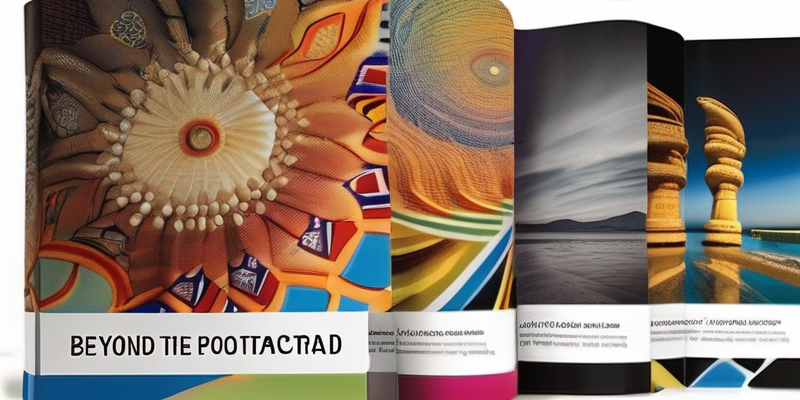The glossy travel brochures rarely tell the whole story. Behind the carefully curated tourist attractions and Instagram hotspots lies the true heartbeat of a destination—its people, traditions, and everyday rhythms. While there's nothing wrong with visiting iconic landmarks, travelers who venture beyond the well-trodden path often return home with the most profound memories and authentic experiences. Cultural immersion isn't just about observing local life from a distance; it's about active participation and genuine connection. It requires curiosity, respect, and sometimes stepping outside your comfort zone. But the rewards—deeper understanding, meaningful relationships, and a more nuanced perspective of the world—are immeasurable. In this guide, we'll explore practical ways to experience the authentic pulse of a destination, transforming your travels from mere sightseeing to life-changing cultural exchanges.
Learn the Language Basics: Your Key to Connection
Perhaps the single most powerful tool for cultural immersion is language. Even mastering a few key phrases can transform your travel experience, opening doors that remain firmly closed to those who make no effort to communicate on local terms. Before your trip, commit to learning at least 15-20 essential expressions:
greetings, please and thank you, numbers, and basic questions. Free apps like Duolingo or Memrise make this easier than ever.
Fez:
Beyond practical communication, your attempts to speak the local language signal respect and genuine interest in the culture. Locals often respond with appreciation, patience, and openness when they see visitors making an effort, even if your pronunciation isn't perfect. These interactions frequently evolve into impromptu language lessons, cultural exchanges, and sometimes invitations to experiences that aren't available to the average tourist.
Chefchaouen:
Carry a small phrasebook or language app for reference, but don't hide behind technology. The occasional misunderstanding or mispronunciation often leads to laughter and connection—these "mistakes" are actually opportunities for authentic human interaction. Remember that communication extends beyond words; a humble attitude and genuine smile transcend language barriers and create the foundation for meaningful cultural exchange.
Eat Where the Locals Eat
To truly experience Morocco, dive into its rich culture. Here are some highlights:
Culinary Classes:
Food is perhaps the most accessible and enjoyable gateway to cultural understanding. Skip the restaurants with English menus and tourist-friendly photos displayed outside. Instead, follow the locals—busy eateries filled with residents rather than visitors almost always offer more authentic cuisine at better prices. Look for places that specialize in just a few dishes rather than extensive menus trying to please everyone.
Music Festivals:
Morning markets and street food stalls provide not just delicious meals but windows into everyday life. Wake up early to visit local markets where residents shop for daily ingredients—observe cooking techniques, ask questions about unfamiliar produce, and sample regional specialties in their natural context. These spaces often reveal more about local culture than any museum could.
Artisanal Workshops:
Consider taking a cooking class that includes a market tour, where you'll learn not just recipes but the cultural significance behind traditional dishes. Many communities now offer home-dining experiences where local families host visitors for meals in their own kitchens—platforms like EatWith, Traveling Spoon, and Meal Sharing connect travelers with these intimate culinary experiences that foster genuine connection while supporting local economies directly.
Stay in Neighborhoods, Not Tourist Districts
Plan your visit around one of Morocco's vibrant festivals to experience the culture at its best:
Marrakech International Film Festival:
Where you choose to base yourself dramatically shapes your travel experience. Tourist zones offer convenience but often present a sanitized, commercialized version of local culture. For authentic immersion, consider accommodations in residential neighborhoods where everyday life unfolds naturally. Platforms like Airbnb and VRBO make this easier than ever, allowing you to rent apartments in local districts where you'll shop at neighborhood markets and become a temporary resident rather than a passing visitor.
Fez Festival of World Sacred Music:
Before booking, research neighborhoods thoroughly. Look for areas described as "up-and-coming," "residential," or "authentic" in travel blogs written by expats or long-term visitors rather than mainstream guidebooks. Prioritize safety but don't confuse unfamiliarity with danger—many perfectly safe neighborhoods simply haven't been discovered by mass tourism yet. Consider locations near universities, which often feature affordable dining options, cultural activities, and a youthful, dynamic atmosphere.
Gnaoua World Music Festival:
Once settled in your neighborhood, establish routines that mirror local life. Find "your" coffee shop where you become a regular, greeting the same barista each morning. Shop at nearby markets, learning vendors' names and practicing language skills during daily interactions. These micro-relationships and repeated encounters transform you from observer to participant, offering insights into community dynamics that remain invisible to those who merely pass through.
Engage with Local Traditions and Celebrations
Traveling sustainably ensures that Morocco's beauty is preserved for future generations. Here are some tips:
- Festivals, ceremonies, and community events offer concentrated doses of cultural authenticity, revealing values, beliefs, and traditions in vibrant detail. Research local calendars before your trip to coincide with significant cultural celebrations, but look beyond the major tourist-oriented festivals to smaller, community-based events that rarely appear in guidebooks.
- Approach these experiences with respectful curiosity rather than a consumer mindset. Before attending religious ceremonies or cultural rituals, learn appropriate etiquette and dress codes. Position yourself as a humble observer rather than an entitled tourist—ask permission before taking photos, participate only when invited, and express genuine gratitude for the privilege of witnessing community traditions.
- Consider reaching out to local cultural centers, community organizations, or university international offices, which often welcome visitors to events or can connect you with appropriate cultural experiences. Religious institutions frequently host community gatherings open to respectful visitors—attending a local worship service, even if you don't share the faith, can provide profound insights into community values and social structures while offering opportunities for meaningful conversation.
Cultural immersion isn't just a travel style; it's a mindset that transforms journeys from passive consumption to active exchange. By stepping off the tourist conveyor belt and into the flow of local life, we not only gain authentic experiences but also contribute to a more equitable and respectful form of tourism. These connections remind us that despite surface differences, human experiences share common threads of joy, struggle, celebration, and community. The souvenirs that matter most aren't the trinkets we bring home but the expanded perspectives we carry within us—the ability to see the world, and ourselves, through new eyes. As you plan your next adventure, remember that the most extraordinary travel experiences often happen in ordinary moments of genuine connection. The true destination isn't marked on any map; it's the space between cultures where understanding blooms.

